Elsa Einstein was Albert Einstein's second wife as well as his first cousin — and she remained married to him despite his frequent affairs.
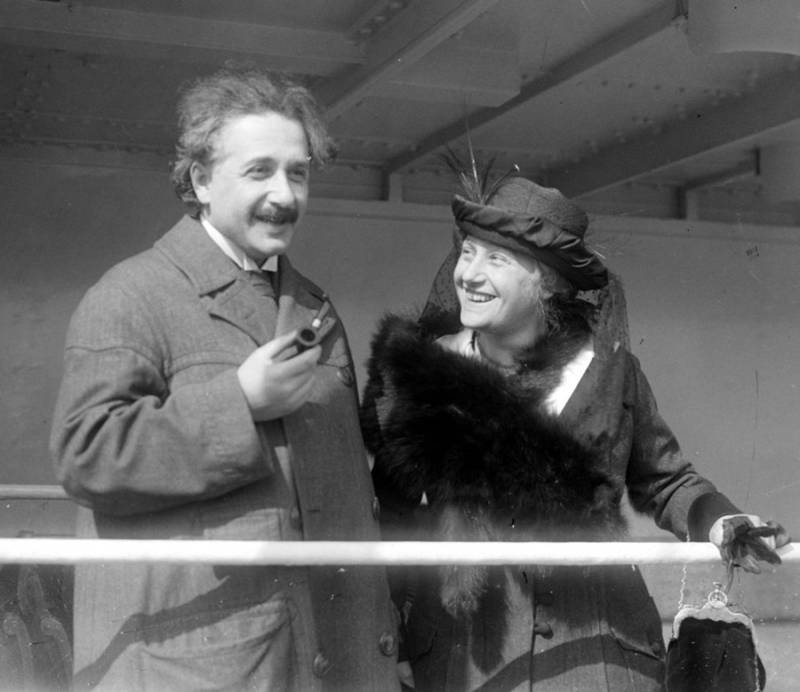
Wikimedia CommonsElsa Einstein with her husband, Albert Einstein.
You don’t have to be a genius to make a marriage healthy. In fact, you probably shouldn’t be — just ask Albert and Elsa Einstein.
Elsa is often thought of as her husband’s trusted companion, a woman who knew how to handle the brilliant physicist. She nursed him back to health in 1917 when he fell ill, accompanied him on trips around the world as his star rose, and remained his loyal protector until the end of her life in 1936.
But Albert and Elsa Einstein’s relationship was complex. In fact, their marriage was marred by shocking infidelity.
Elsa And Albert Einstein Were First Cousins
Elsa Einstein was born Elsa Einstein on January 18, 1876. That’s not a mistake — Elsa’s father was Rudolf Einstein, the cousin of Albert Einstein’s father. And because her mother and Albert’s mother were also sisters, Elsa and Albert Einstein were actually first cousins.
She and Albert knew each other growing up, but their romantic connection came later. Elsa married her first husband, Max Lowenthal, in 1896, and Albert married his first wife, a Serbian mathematician named Mileva Marić, in 1903. Both were married for several years, and both had children with their spouses. But neither Elsa nor Albert were content.
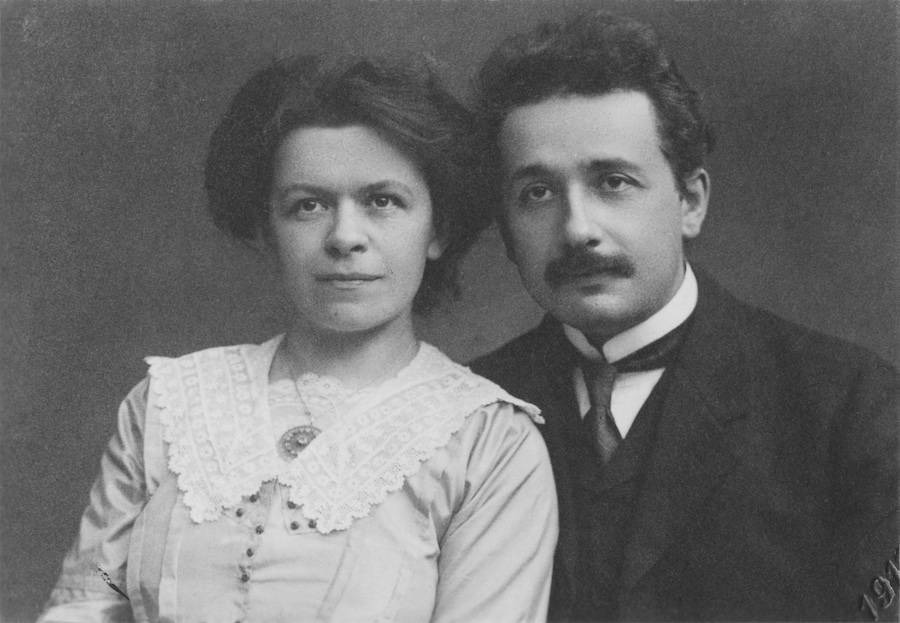
Wikimedia CommonsAlbert Einstein with his first wife, Mileva Marić, in 1912.
Though less is known about Elsa Einstein’s first marriage, there’s plenty of evidence that Albert’s attitude toward Marić grew detached and cruel. Letters donated by Elsa’s daughter, Margot (with the stipulation that they would not be published until 20 years after her death) clearly showed Albert’s disdain for his first wife.
“A. You will see to it (1) that my clothes and linen are kept in order, (2) that I am served three regular meals a day in my room. B. You will renounce all personal relations with me, except when these are required to keep up social appearances,” he wrote, as reported by The New York Times. He added: “You will expect no affection from me” and “You must leave my bedroom or study at once without protesting when I ask you to.”
By 1912, Albert and Elsa Einstein began to grow close. Though Elsa had gotten divorced in 1908, Albert was still very much married to Marić when their relationship as cousins took a romantic turn.
The Marriage Of Albert And Elsa Einstein
In 1914, Albert Einstein moved his family from Zurich to Berlin where Elsa was conveniently located. As Albert’s marriage with Marić fell apart — Marić moved back to Zurich in 1914 with their two sons, Hans Albert and Edouard — Elsa stepped into a supportive role. She quickly proved her devotion to Albert, nursing him back to health when grew seriously ill in 1917.
By 1919, the two married shortly after Albert’s divorce was finalized. But their marriage was complicated from the beginning.
For starters, a letter written by Albert showed that he wasn’t in much of a rush to marry Elsa. “The attempts to force me into marriage come from my cousin’s parents and is mainly attributable to vanity, though moral prejudice, which is still very much alive in the old generation,” he complained in 1915.
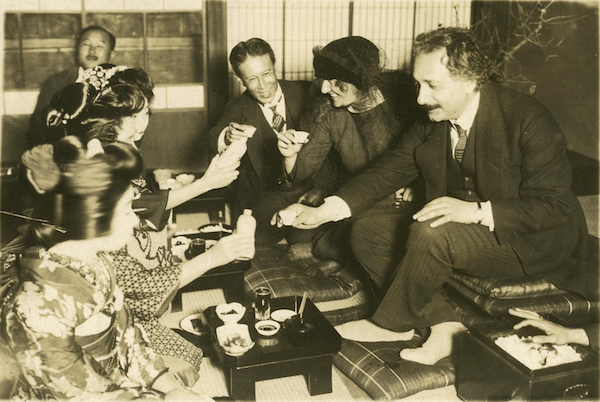
Wikimedia Commons Elsa and Albert Einstein on a trip to Japan in 1922.
What’s more, Albert had even floated the idea of marrying someone else — Elsa’s daughter, 20-year-old daughter Ilse. Ilse had worked as Albert’s secretary and saw him as a father figure but had no desire to be his wife.
“I know that A. loves me very much, perhaps more than any other man ever will, he also told me so himself yesterday,” she fretted in a letter of her own from May 1919, a month before Albert and Elsa Einstein’s wedding. “I can hardly believe it myself and feel very unhappy doing so as well. Help me!”
Even once they were married, Albert continued to be unfaithful. He had affairs with a number of young women including Ethel Michanowski, one of Elsa’s friends. And indeed, Albert Einstein had few qualms about infidelity. As he explained to Elsa, according to National Geographic, “one should do what one enjoys, and won’t harm anyone else.” At another point, Albert wrote that monogamy was “a bitter fruit for everyone involved.”
Elsa Einstein apparently found this acceptable. She moved from Germany to the United States with her husband in 1933, as antisemitism rose in Germany and Albert became the target of various right-wing groups. They settled in Princeton, New Jersey, where Albert worked as a professor of theoretical physics at the Princeton Institute for Advanced Study.
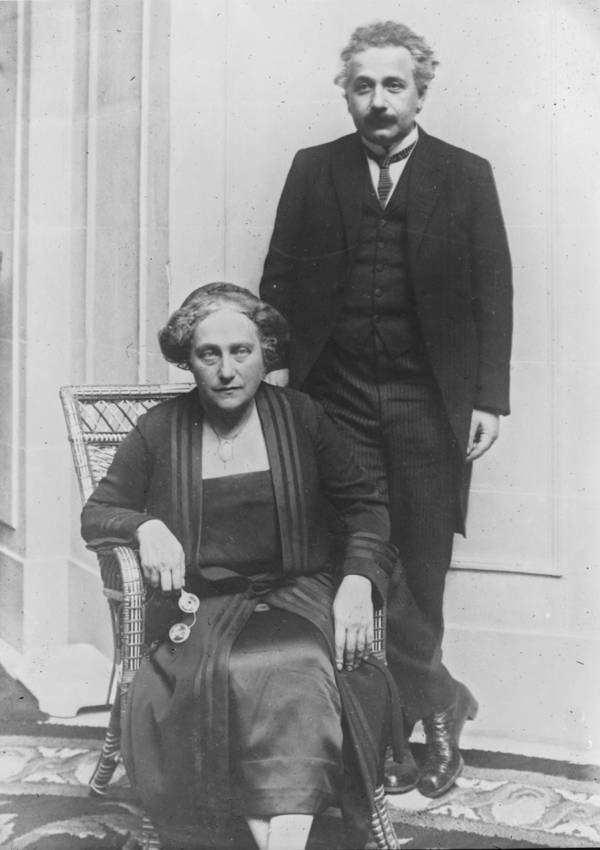
Wikimedia CommonsElsa and Albert Einstein in 1923.
Shortly after they arrived, however, Elsa left her husband’s side to tend to Ilse in Paris, who died of tuberculosis that year. And when she returned to the United States in 1935, Elsa Einstein developed heart and liver problems of her own. As her condition worsened, Albert retreated further into his work.
How Elsa Einstein’s Death Affected Albert
Walter Isaacson, the author of Einstein: His Life and Universe, addressed the duality of the physicist, writing: “When confronted with the emotional needs of others, Einstein tended to retreat into the objectivity of his science.”
But though Albert Einstein immersed himself in work as his wife’s condition grew dire, he didn’t outright neglect Elsa. As she became more ill, Elsa Einstein even told a friend that Albert seemed profoundly affected by her illness and remarked: “I never thought he loved me so much.”
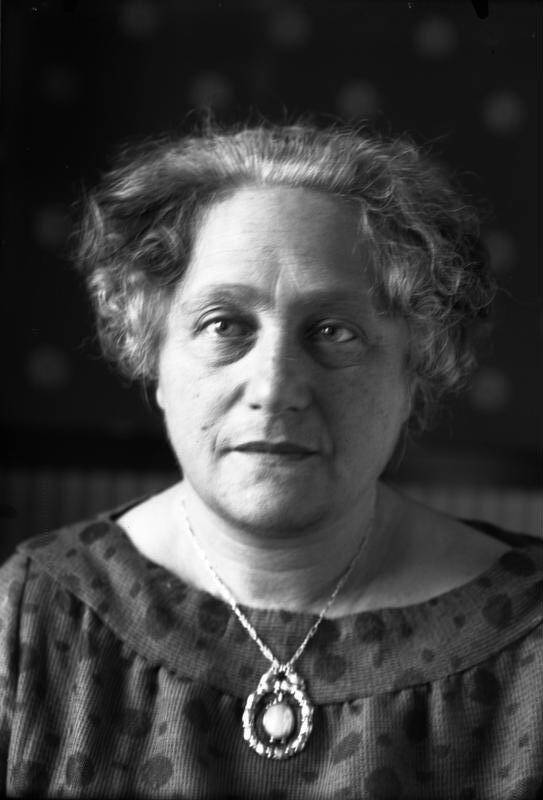
German Federal ArchivesElsa Einstein in 1929.
Elsa Einstein died on Dec. 20, 1936, in the Princeton home she shared with her husband. It’s reported that Albert was genuinely heartbroken over the loss of his wife. His friend Peter Bucky commented that it was the first time he saw Albert cry and Albert himself wrote in 1938: “I wouldn’t want to go on living if I didn’t have my work.”
But by the 1950s, Albert Einstein seems to have changed his tune. In a lighter missive to a boyhood friend in 1952 — a few years before Albert Einstein’s death in 1955 — he quipped: “I am doing fairly well, in that I am the triumphant survivor of the Nazi period, and of two wives.”
If you liked this article on Albert Einstein’s wife, Elsa Einstein, you may want to also check out these 25 facts you didn’t know about Albert Einstein. Then, check out these shocking cases of famous incest throughout history.





